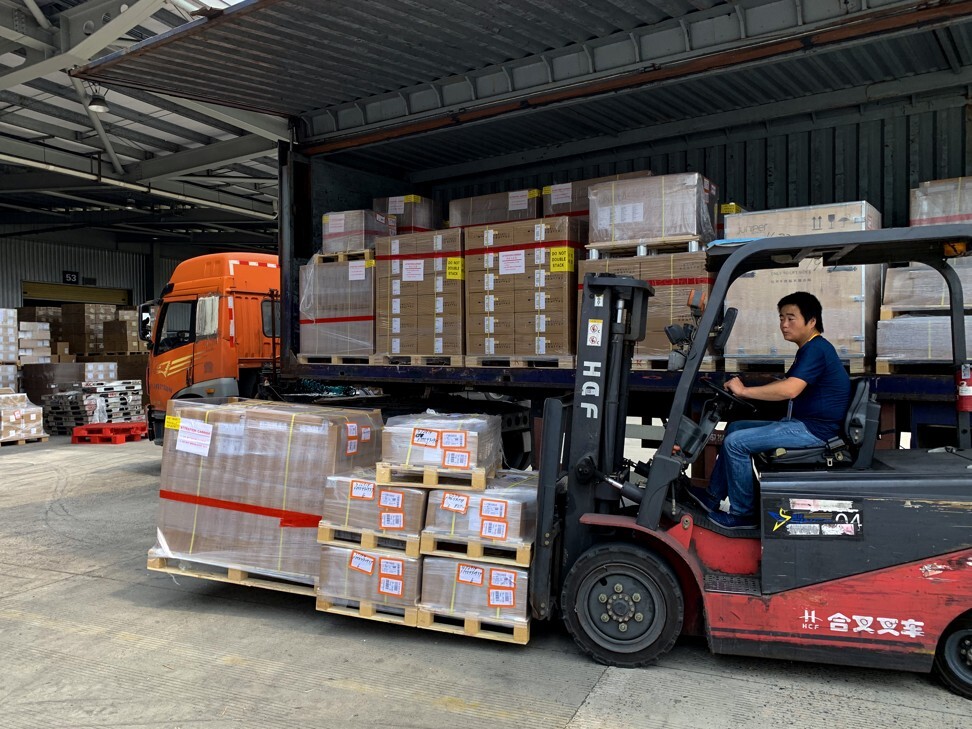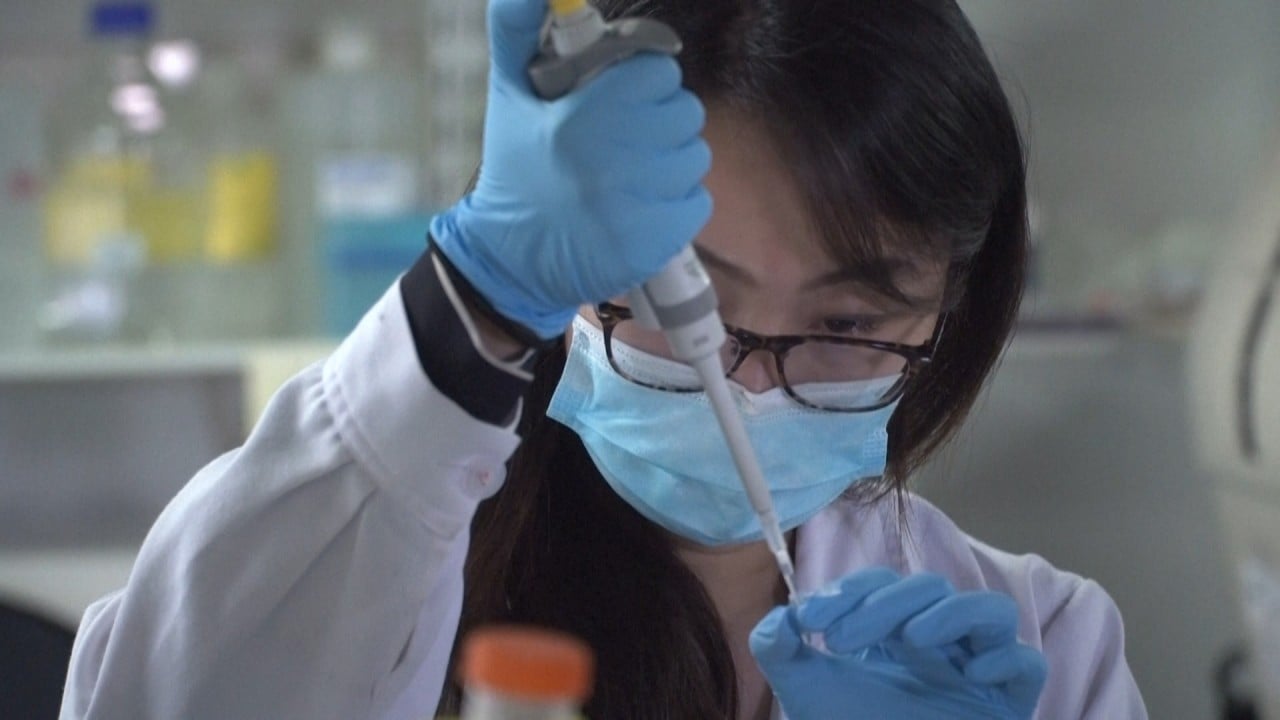
Shanghai’s logistics industry revels in chaotic boom as rates soar, ‘dreads’ the arrival of coronavirus vaccine
- Pandemic has upset the industry fundamentals, pushing some air freight rates up fourfold this year
- Industry executives say the decline in volume of masks, hospital equipment and medical devices will be replaced by other goods as the world returns to normal
Chen Monian was transporting cartons of personal protective equipment (PPE) from a container truck to a cargo terminal at the Shanghai Pudong International Airport when the watch showed it was time to clock out.
During that pause in a late April shift, he recalls, he thought it was probably the busiest day of his eight-year working life as a forklift driver with Shanghai-based firm Jiujin Logistics.
“The volumes of masks, hospital equipment and medical devices bound for all over the world created a hectic scene like never before,” he said. “You cannot imagine how strong the business was like at that time.”

The air freight chart captures those hectic months Chen described as “chaotic” – as airlines cancelled flights and took out the cargo space in their bellies along the way, upending the fundamental balance in the logistics industry.
Shipments from Pudong to North America surged fourfold to as high as 73.80 yuan per kg (US$10.40), according to the TAC Index compiled by The Air Freight Index Company based in Hong Kong. From Hong Kong, the shipment rate soared 2.5 times to HK$65.69 (US$8.5).
“It was a different world altogether in the air freight business,” said Jiang Hai, an operations manager with freight forwarding company Tenglong. “In April, some of the trucks had to spend three days in queues before they could drop off their shipments at the terminals. Some planes were forced to leave without their loads because the trucks were stuck outside the terminals.”
Since May, however, signs are signalling a slow return to the old world. The gridlock at cargo terminals has eased, more economies are reopening as the race for the Covid-19 vaccine intensifies. Carriers are returning more planes to the sky and air freight rates have retreated from their peaks.
In a selfish way, we hope that the vaccine will not arrive too early
“I think we will lose some business from the PPE goods but will see an increase in goods from other categories, such as food and machinery components in the second half of this year,” said Xiong Hao, an assistant general manager at Shanghai Jump International Shipping Co. “In a selfish way, we hope that the vaccine will not arrive too early.”

02:10
Scientists in China claim a new drug could stop Covid-19 without a vaccine
A vaccine or cure for Covid-19 could eventually rein in the cost of moving goods, as the TAC Index shows. Aviation data, however, signals it won’t happen in the immediate term.
There were 3,714 air cargo flights from Shanghai Pudong airport in April, a 73 per cent increase year on year. In May, the number of international flights more than doubled to 4,910, according to VariFlight, a civil aviation data services by Hefei, Anhui province-based Feeyo Technology Co.
“Our drivers [in Shanghai] were working round the clock [in April],” said Jimmy Zhang, executive director of Kerry EAS Logistics, a unit of Hong Kong-listed Kerry Logistics, which has increased its workforce from 100 to more than 500. “They had to wait outside the airport for up to 28 hours before dropping off the shipments.”
What to expect when the coronavirus-hit world starts flying again
Xiong at Shanghai Jump International Shipping said trucking companies have turned away demand despite offers at several times the average rates.
“They were offered lofty prices to secure truck services but many of the owners refused to do the business because they balked at the gridlock at the airport.”
Zhongtai Securities predicted that up to 70 million workers could have lost their jobs owing to the economic downturn this year because of the pandemic. This translates into an actual unemployment rate of around 20.5 per cent, it said.
“I feel very lucky because the logistics industry is one of the few bright spots during this pandemic crisis,” Chen said.


